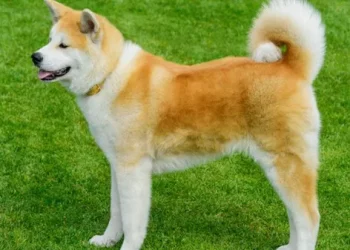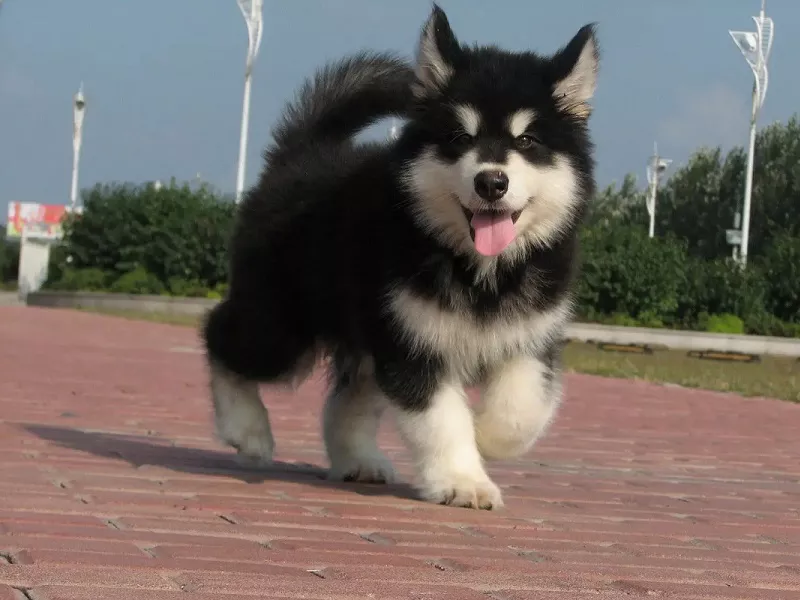When it comes to providing optimal nutrition for your beloved Akita, selecting the right dog food is crucial. These majestic, large breed dogs require a balanced diet that supports their overall health, energy levels, and specific nutritional needs. In this article, we will explore the key considerations for choosing the best dog food for Akitas, including their unique dietary requirements, common health concerns, and recommended ingredients. By making informed choices, you can ensure your Akita thrives and remains a loyal and healthy companion for years to come.
Understanding the Akita’s Nutritional Needs:
Akitas are a robust breed with distinct dietary requirements. As a large and active breed, they need a well-balanced diet that provides essential nutrients, proteins, fats, carbohydrates, vitamins, and minerals. Here are some factors to consider when selecting the best dog food for Akitas:
Protein Content: Akitas are muscular dogs that require high-quality protein sources to support their muscle development and overall vitality. Look for dog foods with a minimum of 25-30% protein content, with animal-based proteins such as chicken, beef, fish, or lamb listed as the primary ingredients.
Fat Content: Healthy fats are crucial for Akitas, as they provide a concentrated source of energy. Look for dog foods with moderate levels of fat, ideally around 12-15%. Opt for sources like chicken fat or fish oil, which contain essential omega-3 and omega-6 fatty acids for a healthy coat and skin.
Carbohydrates: While Akitas are primarily carnivores, carbohydrates can still play a role in their diet. High-quality carbohydrates like sweet potatoes, brown rice, or peas can provide a steady release of energy and support digestion. Avoid dog foods with excessive amounts of grains or fillers, as Akitas may be prone to food sensitivities or allergies.
Joint Health: Akitas are susceptible to joint problems like hip dysplasia and arthritis. Look for dog foods that contain glucosamine and chondroitin, as these ingredients promote healthy joints and cartilage.
Food Allergies and Sensitivities: Some Akitas may have food allergies or sensitivities. Monitor your dog for any signs of allergies such as itching, gastrointestinal distress, or skin issues. If you suspect an allergy, consult with your veterinarian to determine the specific ingredient(s) causing the problem. Consider limited ingredient or grain-free formulas to reduce the risk of allergic reactions.
Common Health Concerns and Dietary Considerations:
Apart from their specific nutritional needs, Akitas are prone to certain health issues that may require additional dietary considerations. Understanding these concerns will help you make informed choices regarding your Akita’s diet:
Bloat: Akitas, like other deep-chested breeds, are susceptible to bloat (gastric dilatation-volvulus). To reduce the risk, feed your Akita smaller, frequent meals, and avoid vigorous exercise immediately before and after meals.
Allergies and Skin Conditions: Food allergies and skin conditions can affect Akitas, leading to itching, hot spots, and inflammation. Choosing hypoallergenic dog foods that are free from common allergens such as wheat, soy, corn, and artificial additives can help alleviate these issues.
Obesity: Akitas have a tendency to gain weight if overfed or if their diet lacks proper portion control. Monitor their food intake and adjust accordingly to maintain a healthy body weight. Consult with your veterinarian to determine the ideal feeding guidelines for your Akita based on their age, activity level, and body condition.
Dental Health: Like all dogs, Akitas benefit from good dental hygiene. Feeding kibble or dry dog food can help reduce plaque and tartar buildup, promoting better oral health. Additionally, offering dental treats or incorporating dental care practices into their routine can further support dental hygiene.
Recommended Ingredients and Brands:
While individual dogs may have specific dietary needs or preferences, several reputable dog food brands offer quality options suitable for Akitas. Some ingredients to look for when choosing the best dog food for your Akita include:
Animal-Based Proteins: Look for whole meats like chicken, beef, fish, or lamb listed as the first ingredient. High-quality proteins are essential for muscle maintenance and overall health.
Digestible Carbohydrates: Opt for nutrient-rich carbohydrates such as sweet potatoes, brown rice, or peas. These ingredients provide energy and promote healthy digestion.
Natural Preservatives and Additives: Avoid dog foods with artificial preservatives, colors, or flavors. Instead, opt for natural preservatives such as vitamin E (mixed tocopherols) and vitamin C (ascorbic acid).
Conclusion:
Providing your Akita with the best dog food is essential for their overall health and well-being. By understanding their unique nutritional needs, considering common health concerns, and selecting high-quality ingredients, you can ensure your Akita receives the balanced diet they require. Remember to consult with your veterinarian for personalized advice and recommendations based on your Akita’s specific needs. With proper nutrition, you can help your Akita lead a happy, active, and healthy life by your side.
Recommended Reading:


























